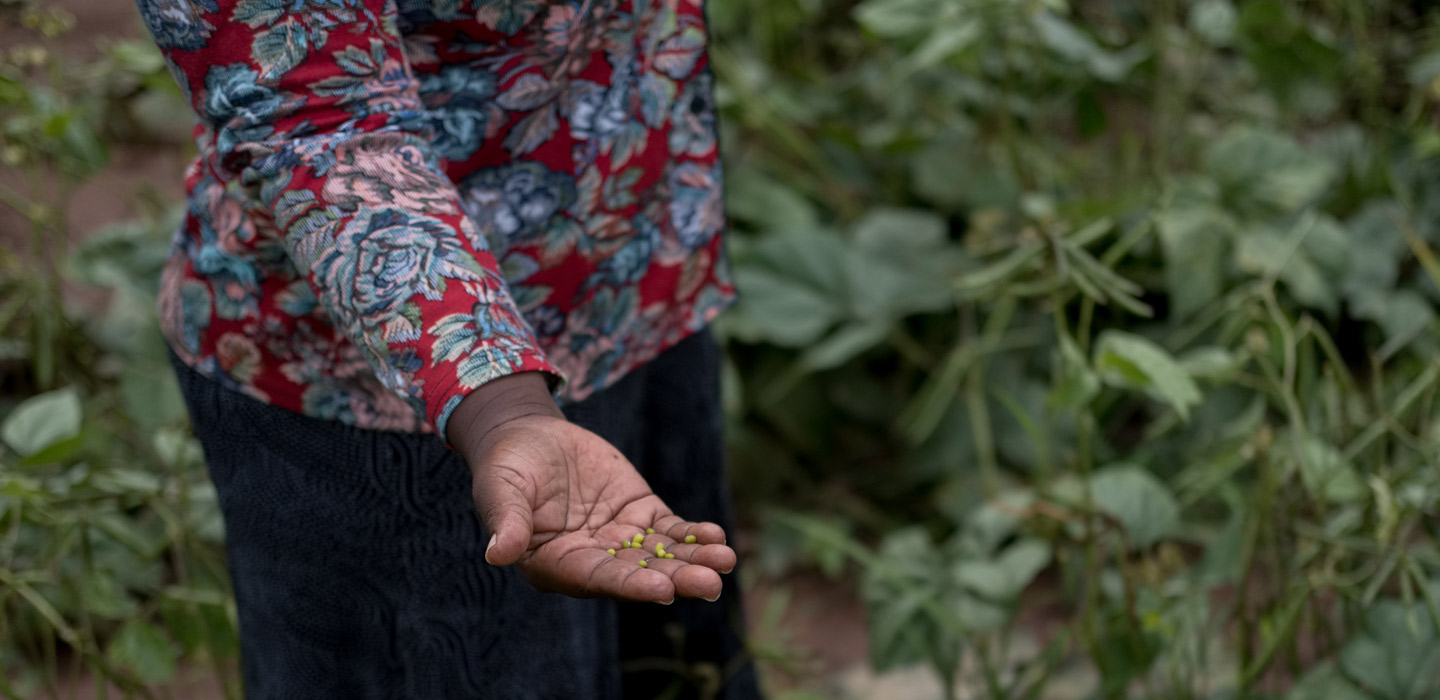The Gilani Umoja Youth Group reaps their rewards
IFAD Asset Request Portlet
Asset Publisher
The Gilani Umoja Youth Group reaps their rewards
Estimated reading time: 3 minutes
Our East and Southern Africa series is dedicated to the achievements of five youth-led agribusinesses in the Nakuru and Kilifi counties of Kenya. Each of them has had remarkable success, and each of them has taught us something valuable about rural development that we can bring forward to other projects. All of the groups in this series are supported by Vijabiz, an IFAD-funded project dedicated to empowering young people through mentorship and agribusiness entrepreneurship.
“We are in a village where there are many people – and where there are many people, they must eat.”
When Francis Kangara Wangari looked around his community, he saw two problems. One: unemployment was high, especially for younger people. Two: there was room in the market for a new business selling cereals – maize, rice, grains. After all, practically everyone in the community needed them – beyond being crucial staple foods, they are used in a wide variety of local dishes. So, in 2017, he founded the Gilani Umoja Youth Group as a way to create jobs for the community’s youth and ensure a steady supply of staples for his village.
The group began by simply buying and selling raw cereals – but they soon found themselves struggling. Like many other start-ups in the area, they found it challenging to get the financing and equipment they needed to support their business. They also weren’t able to price their products as high as they might have liked, leading to low profit margins. And with no online presence, they lacked visibility and found it difficult to attract new customers.
Eventually, the group saw an advertisement for the Vijabiz initiative – a programme offering business training and mentorship for agricultural start-ups, along with grants for eligible groups. They applied for the programme and were quickly accepted, and were soon able to take classes in digital marketing, record keeping, and strategies for value addition. At the end of the programme, they also received a US$15,000 grant: US$10,000 for new equipment to add value to the business and US$5,000 to put towards strengthening their contributions to the cereal value chain.
Since then, the Gilani Umoja Youth Group has undergone a complete transformation. They used some of their grant money to buy a corn mill, which allows them to process some of their cereals into flour. With a more diverse range of products to sell, they’re now earning more income.
The group was also able to hire people to operate the mill, thus creating jobs within their community. Now, in addition to supporting its group members, Gilani Umoja is supporting the livelihoods of other local families.
Such is the case for Catherine Ndida, a member of the group and a statistics student at the nearby Jomo Kenyatta University of Agriculture and Technology. Her income from the group allows her to be fully financially independent – she now pays for her studies in addition to her living expenses. Thanks to the Vijabiz trainings, she’s also learned business skills that are helping her manage her own finances.
Perhaps the biggest change for the group has been going digital. After taking the digital marketing training offered by Vijabiz, the group created a Facebook account to market their products. This has increased their visibility and allowed them to attract more clientele. And in the current context of the COVID-19 pandemic, the ability to do business online is more important than ever.
Lessons learned
Youth investment in agriculture is essential to achieving SDG 2 (zero hunger). Young agricultural entrepreneurs are often able to bring new ideas to tackle long-standing problems and leverage their skills across several different value chains – all while creating new jobs. As Gilani Umoja reminds us, it is crucial to support these youth with business mentorship, entrepreneurial skills training, and grants (as in the case of Vijabiz) to help them hone their skills and bring their ideas to fruition.
Learn more about IFAD’s work in Kenya.
Listen to the voices of the Gilani Umoja Youth Group here.